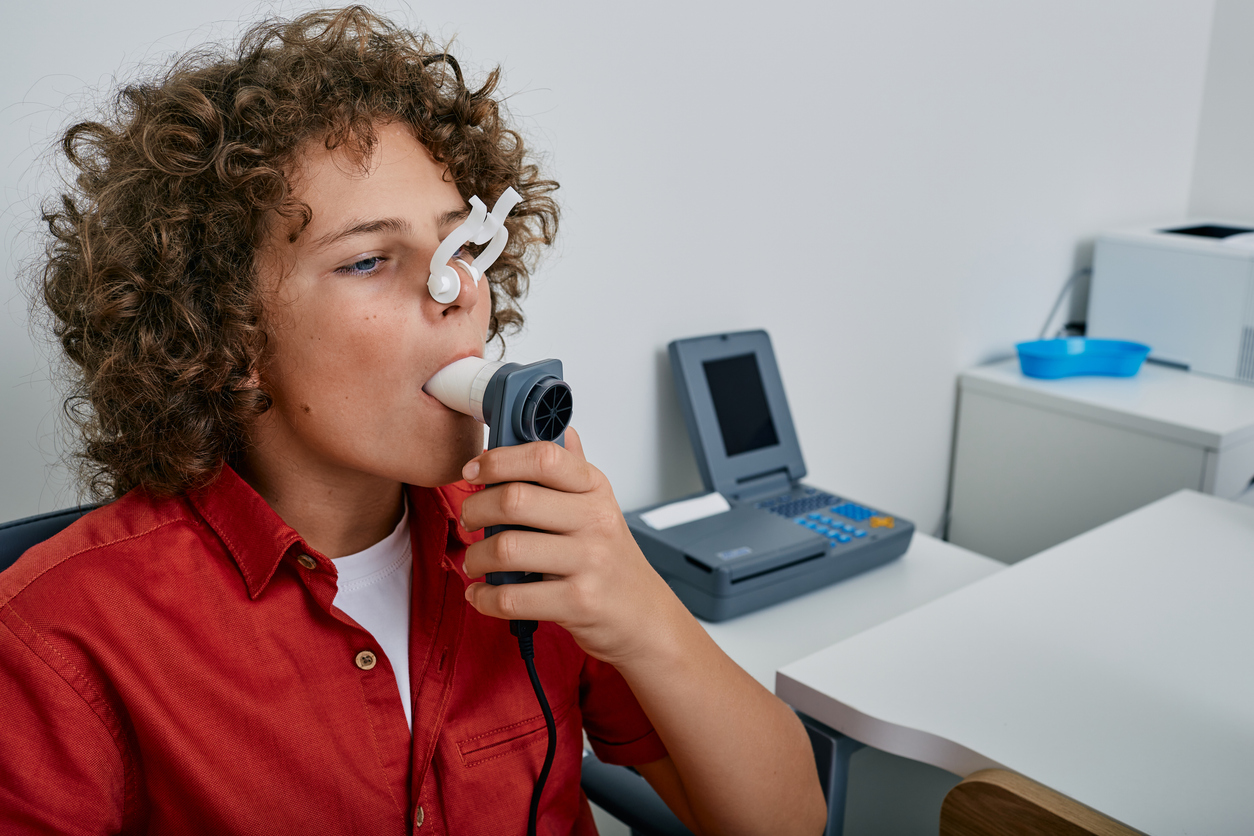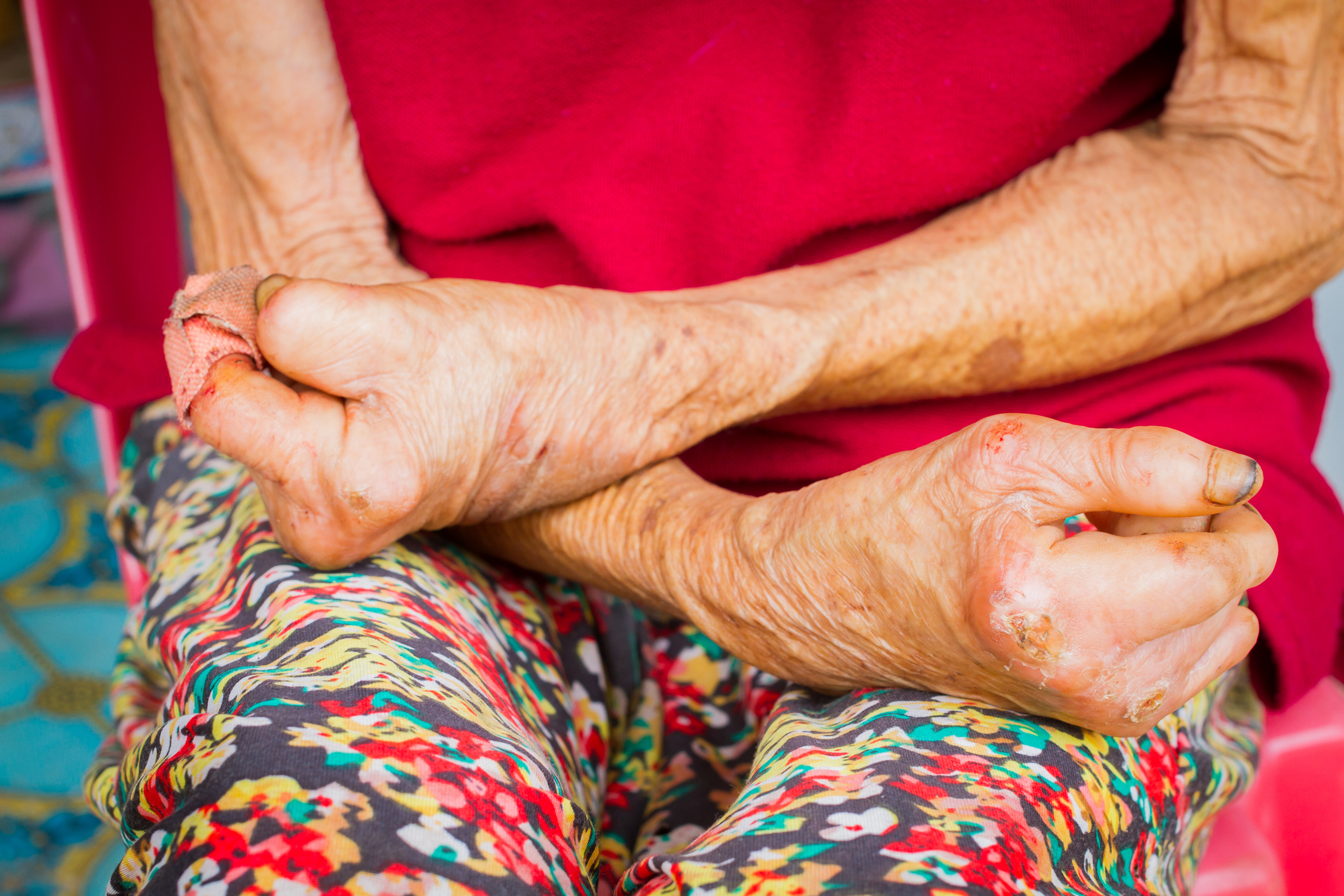2025-06-16
ALS: strengthening to withstand
Oncology
#ALS #Neurodegeneration
#RespiratoryRehabilitation #RMT
Amyotrophic lateral sclerosis (ALS) is a severe, progressive, and incurable neurodegenerative disease, characterized by the degeneration of cortical, bulbar, and spinal motor neurons. It leads to generalized muscle weakness, loss of autonomy, and eventually terminal respiratory failure, which is the main cause of death. The average life expectancy is 3 to 5 years after symptom onset.
The weakness of respiratory muscles, particularly the diaphragm, gradually impairs ventilation, reduces coughing ability, and promotes the accumulation of bronchial secretions, with recurrent respiratory infections. However, the available treatments only partially address these mechanisms. Respiratory rehabilitation, especially respiratory muscle training (RMT), could improve quality of life, functional capacity, or even patient survival. Nevertheless, available data remain fragmented.
This study was initiated to systematically evaluate the impact of RMT on respiratory function, ventilatory muscle strength, survival, and quality of life in patients with ALS.
In this study, five randomized clinical trials including 170 ALS patients, predominantly with spinal forms and a mean age between 53 and 63 years, were selected. The interventions included inspiratory, expiratory, or combined RMT programs, applied via calibrated resistance devices (30 to 60% of maximal inspiratory/expiratory pressure).
The results show a significant improvement in respiratory muscle strength, with notable increases in maximal inspiratory pressure (MIP) and expiratory pressure (MEP) in trained patients. However, forced vital capacity (FVC), a key indicator of pulmonary function, did not significantly improve, suggesting that increased strength does not necessarily translate into better pulmonary volumes. Positive effects were also observed on maximal voluntary ventilation, cough strength (via peak inspiratory/expiratory flow), and swallowing (particularly via the DIGEST score). A prolongation of survival related to inspiratory training was also observed (37 months vs 24 months). No serious adverse events were reported in the studies.
ALS remains a devastating disease, marked by progressive loss of ventilatory capacity. The main challenge is to identify non-pharmacological interventions capable of slowing this decline. This review aimed to determine whether RMT could play that role.
The results confirm that RMT increases respiratory muscle strength, notably MEP, which may improve cough and bronchial drainage. These gains could help delay terminal respiratory failure and reduce infectious complications. Moreover, the positive impact on swallowing suggests a broader role in maintaining vital functions.
However, the effects of RMT on pulmonary capacity, quality of life, and fatigue remain uncertain. The scope of the results is limited by the small sample sizes, heterogeneity of training protocols, and lack of standardized long-term follow-up. To consolidate these promising early findings, further research is essential. This should rely on larger-scale clinical trials, including patient stratification and a more comprehensive assessment of long-term effects. The inclusion of additional criteria, such as dyspnea, sleep quality, or overall motor function, would allow for a more refined analysis of the benefits and better understanding of the overall impact of RMT in the multidimensional management of ALS.
Amyotrophic lateral sclerosis (ALS) is a severe, progressive, and incurable neurodegenerative disease, characterized by the degeneration of cortical, bulbar, and spinal motor neurons. It leads to generalized muscle weakness, loss of autonomy, and eventually terminal respiratory failure, which is the main cause of death. The average life expectancy is 3 to 5 years after symptom onset.
The weakness of respiratory muscles, particularly the diaphragm, gradually impairs ventilation, reduces coughing ability, and promotes the accumulation of bronchial secretions, with recurrent respiratory infections. However, the available treatments only partially address these mechanisms. Respiratory rehabilitation, especially respiratory muscle training (RMT), could improve quality of life, functional capacity, or even patient survival. Nevertheless, available data remain fragmented.
This study was initiated to systematically evaluate the impact of RMT on respiratory function, ventilatory muscle strength, survival, and quality of life in patients with ALS.
What if survival depended on breathing?
In this study, five randomized clinical trials including 170 ALS patients, predominantly with spinal forms and a mean age between 53 and 63 years, were selected. The interventions included inspiratory, expiratory, or combined RMT programs, applied via calibrated resistance devices (30 to 60% of maximal inspiratory/expiratory pressure).
The results show a significant improvement in respiratory muscle strength, with notable increases in maximal inspiratory pressure (MIP) and expiratory pressure (MEP) in trained patients. However, forced vital capacity (FVC), a key indicator of pulmonary function, did not significantly improve, suggesting that increased strength does not necessarily translate into better pulmonary volumes. Positive effects were also observed on maximal voluntary ventilation, cough strength (via peak inspiratory/expiratory flow), and swallowing (particularly via the DIGEST score). A prolongation of survival related to inspiratory training was also observed (37 months vs 24 months). No serious adverse events were reported in the studies.
Read next: Clinical stratification of patients with ALS
Breathing better to live longer?
ALS remains a devastating disease, marked by progressive loss of ventilatory capacity. The main challenge is to identify non-pharmacological interventions capable of slowing this decline. This review aimed to determine whether RMT could play that role.
The results confirm that RMT increases respiratory muscle strength, notably MEP, which may improve cough and bronchial drainage. These gains could help delay terminal respiratory failure and reduce infectious complications. Moreover, the positive impact on swallowing suggests a broader role in maintaining vital functions.
However, the effects of RMT on pulmonary capacity, quality of life, and fatigue remain uncertain. The scope of the results is limited by the small sample sizes, heterogeneity of training protocols, and lack of standardized long-term follow-up. To consolidate these promising early findings, further research is essential. This should rely on larger-scale clinical trials, including patient stratification and a more comprehensive assessment of long-term effects. The inclusion of additional criteria, such as dyspnea, sleep quality, or overall motor function, would allow for a more refined analysis of the benefits and better understanding of the overall impact of RMT in the multidimensional management of ALS.
Read next: Multicellular pathophysiology of neurodegeneration

Last press reviews
Leprosy: a disease still beyond control

By Ana Espino | Published on January 22, 2026 | 3 min read...
Parental alcohol intoxication: the hidden impact on children’s mental health

By Carolina Lima | Published on January 19, 2026 | 3 min read
Obesity: when the kidneys become overwhelmed

By Ana Espino | Published on January 20, 2026 | 3 min read...